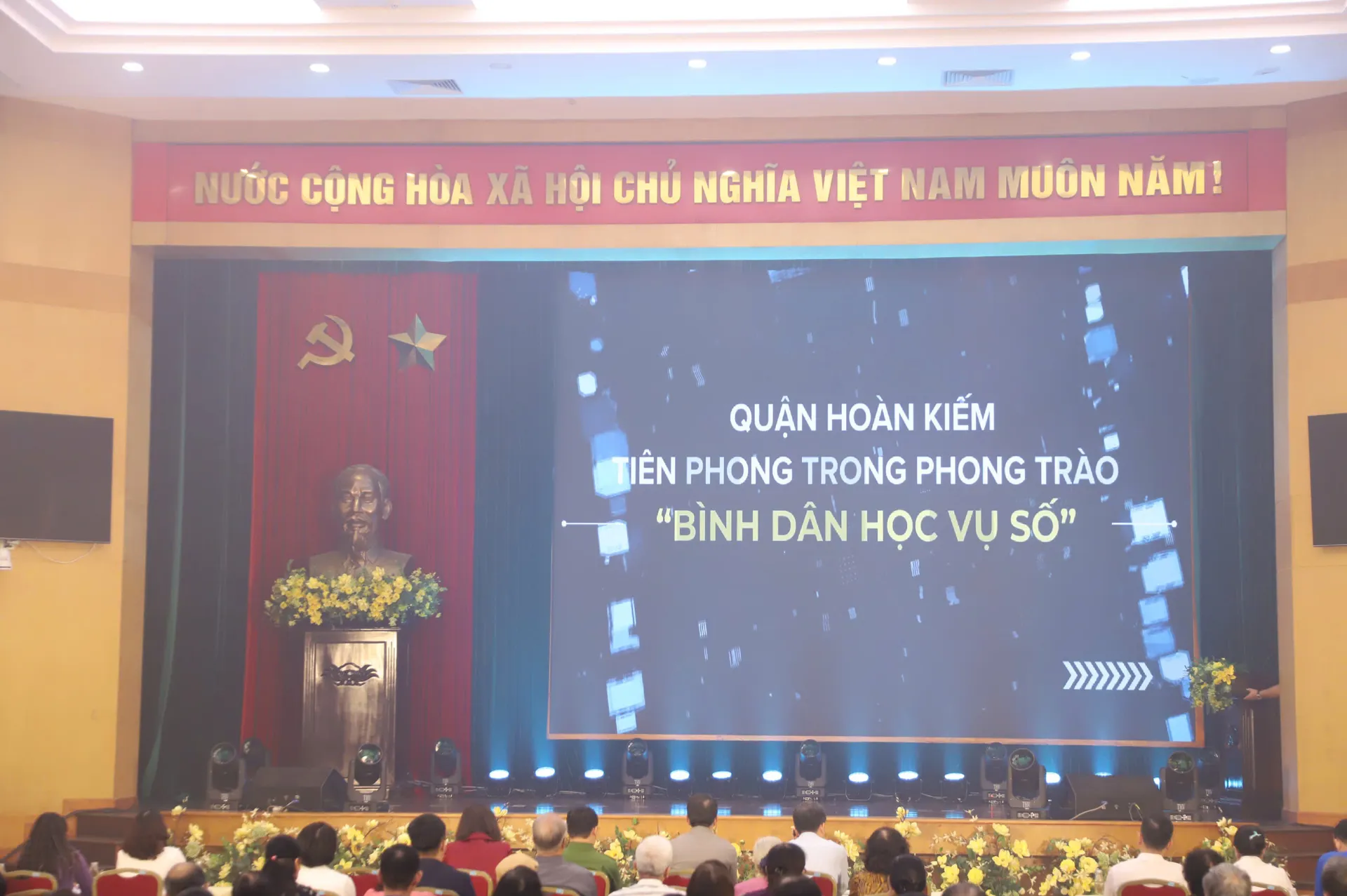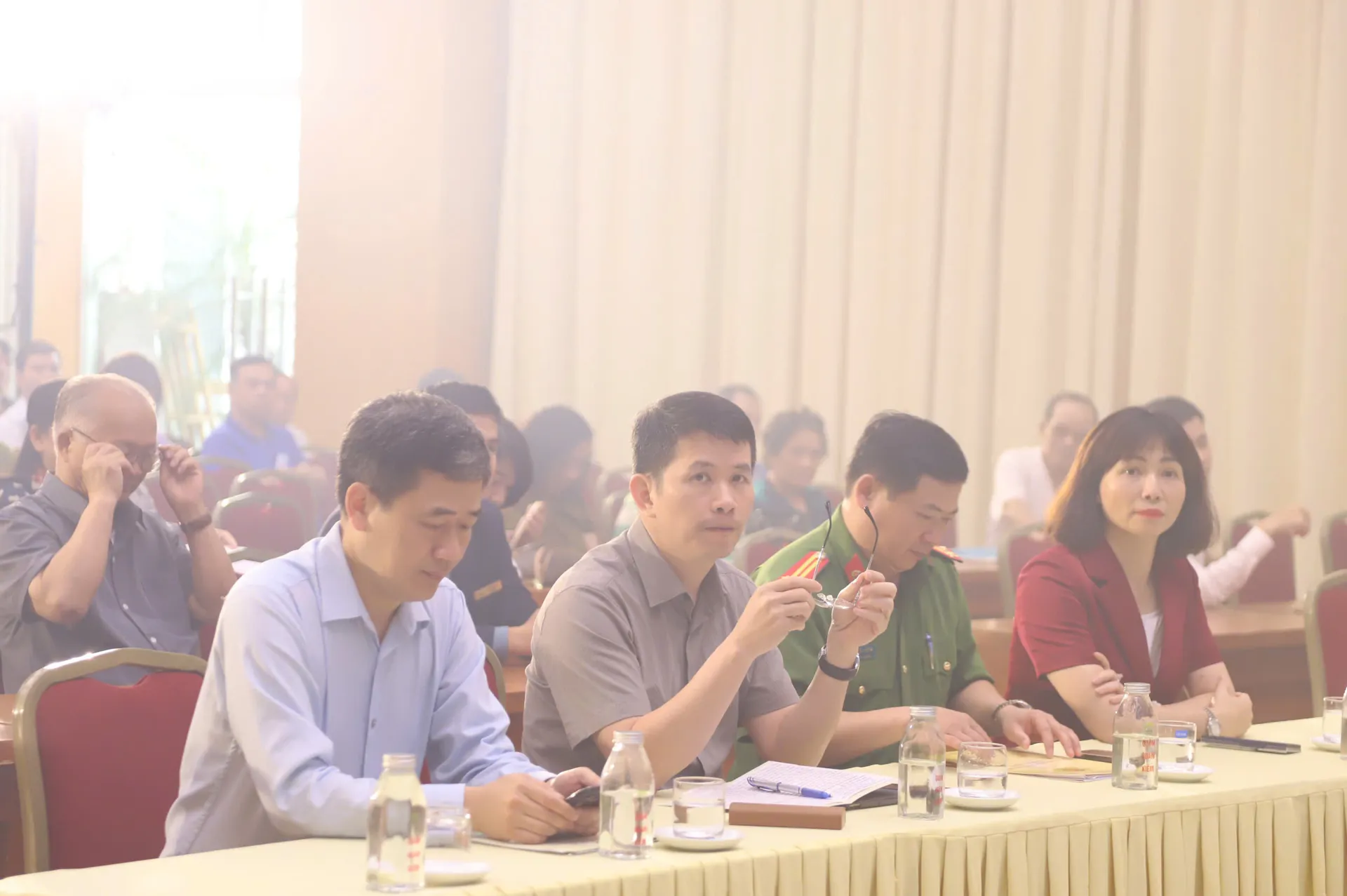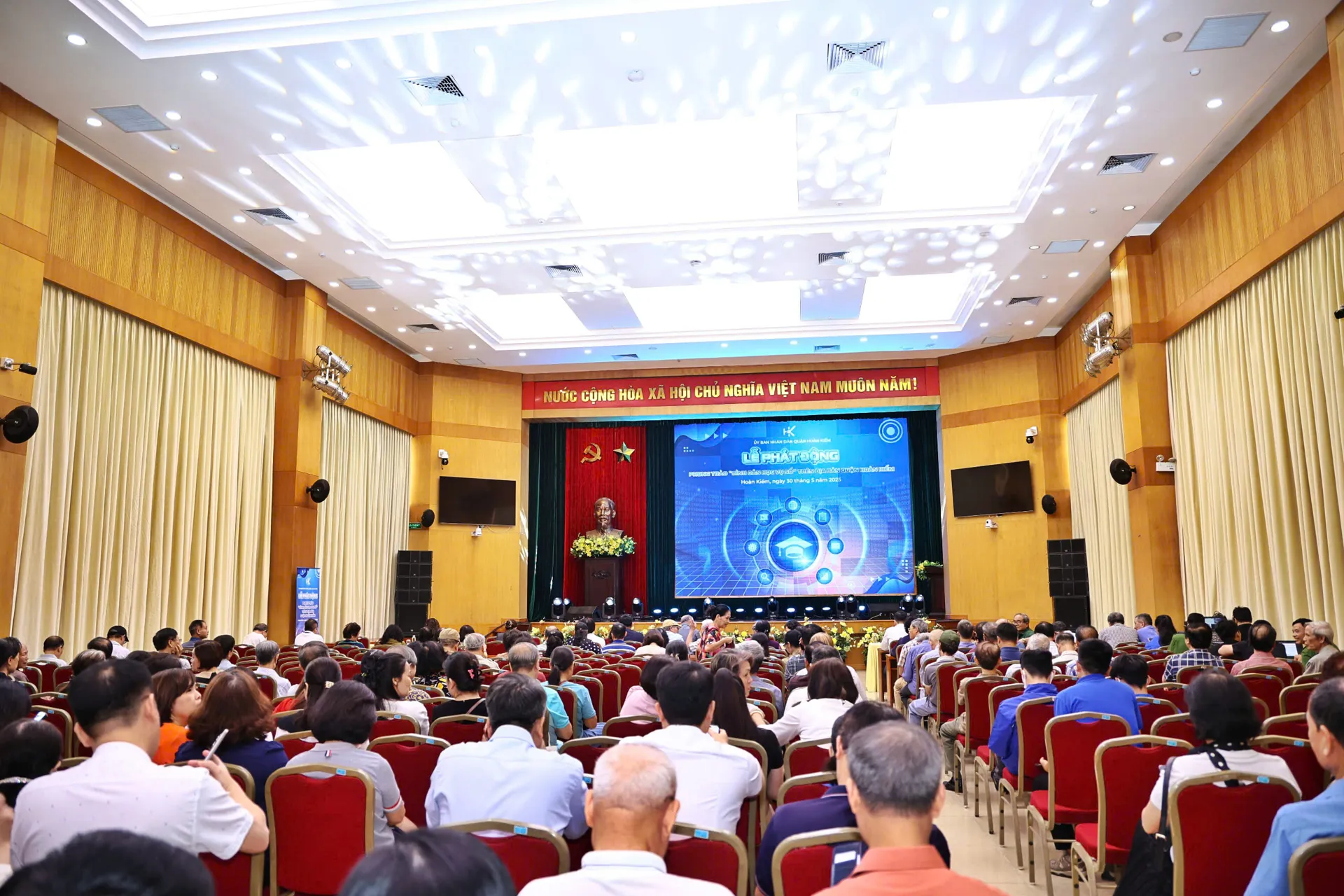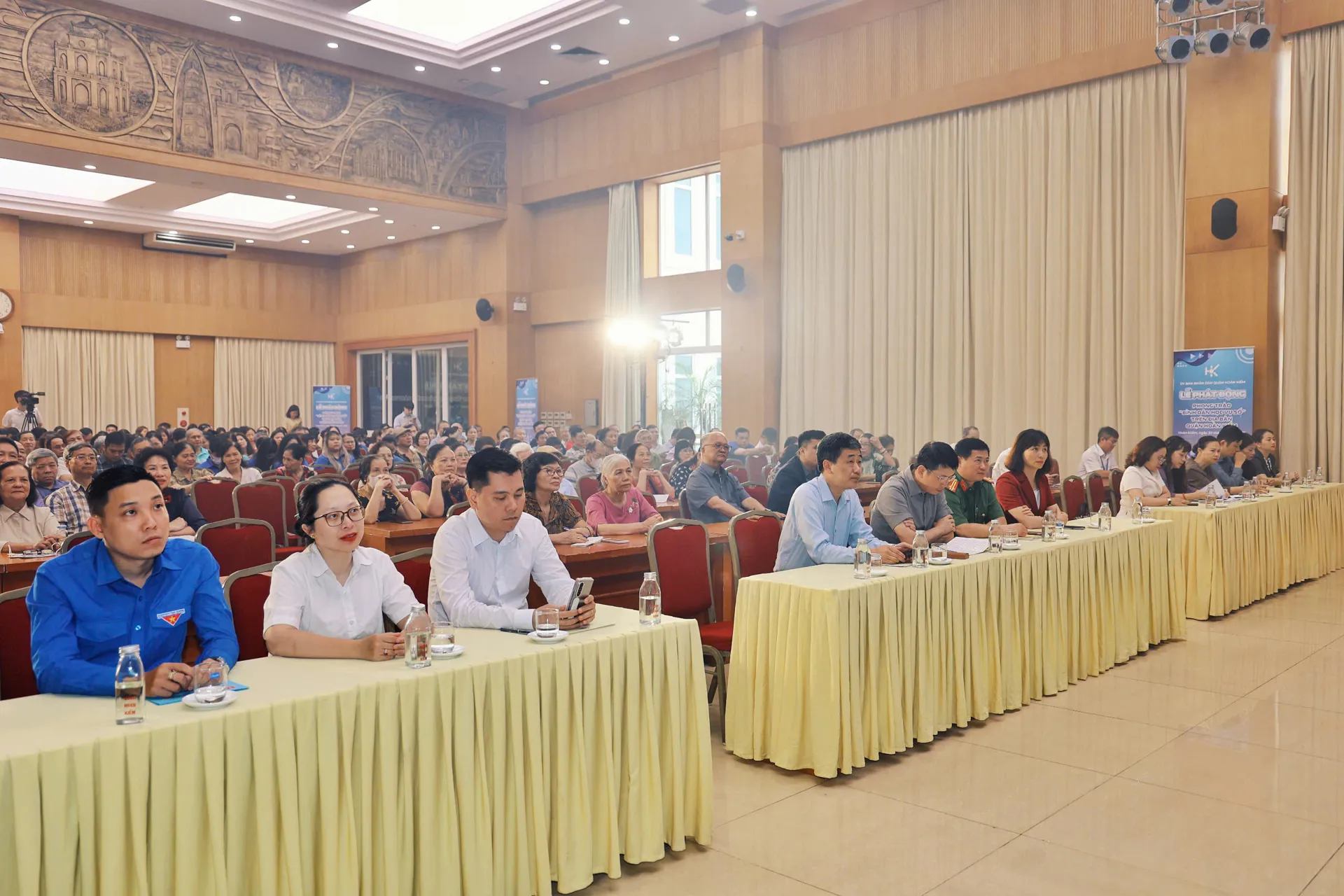Hoan Kiem launches digital literacy campaign to bridge technology gap
This district-wide campaign aims to encourage the use of smart technology and promote an inclusive transformation toward a modern, connected digital society.
THE HANOI TIMES — The Hoan Kiem District today [May 30] launched the “Digital Literacy for All” campaign to equip citizens with essential digital knowledge and skills.
The drive is a concrete step toward fostering digital citizenship, bridging the digital divide within the community, and advancing comprehensive digital transformation from the ground up.
It aims to ensure that 95% of government officials, civil servants, public employees, and other workers are capable of using digital platforms and services in their work by 2025.
The campaign will provide structured digital training to all secondary school students to support learning, research, creativity, and online safety.
Moreover, the campaign expects that over 85% of adults can utilize smart devices, access essential digital services, and protect themselves in cyberspace while increasing smartphone penetration among the adult population to 85%, and over 50% of adults have electronic payment accounts.
This will gradually foster the habit of using online public services. The campaign also plans to train at least 80% of business and cooperative workers to use technology in production and operations, boosting productivity and competitiveness in the digital economy.

Chairman of the Hoan Kiem District People's Committee, Pham Tuan Long, speaks at the event. Photo: Kinh te & Đo thi Newspaper
Speaking at the launching ceremony, Chairman of the Hoan Kiem District People's Committee, Pham Tuan Long, emphasized that digital transformation is an urgent necessity.
He affirmed the district’s commitment to implementing the campaign effectively so every citizen can become tech-savvy and confidently embrace the digital age.
The district will offer training programs tailored to different groups of residents. These classes will take place at cultural centers, libraries, and schools. Outreach activities in local neighborhoods will support these efforts. Youth union members and student volunteers will help people use smartphones, access online services, find information, and make digital payments.
The campaign will involve technology firms in providing specialized training and tools to help people safely access digital services, particularly elderly citizens, manual laborers, and vulnerable groups.

An overview of the launch ceremony. Photos: Kinh te & Đo thi Newspaper
The “Digital Literacy for All” campaign is a concrete step in implementing the Politburo Resolution No. 57, issued in late 2024, which focuses on advancing science, technology, innovation, and national digital transformation.
Led by General Secretary To Lam, the campaign is a nationally significant drive inspired by the 1945 “Literacy for All” movement launched by President Ho Chi Minh. Both movements share the common goal of bringing knowledge to every citizen. While the original campaign established the groundwork for an educated society nearly 80 years ago, the current digital literacy movement empowers individuals to take control of their lives and actively engage in the digital age.
Pham Tuan Long of Hoan Kiem District expressed his belief that the campaign would build strong momentum across the community, given Hoan Kiem’s strong tradition of learning, spirit of innovation, and collective unity. He said it would help position the district as a pioneer in developing digital citizens, a digital government, and a digital society.

Leaders of Hoan Kiem District attend the event.

Delegates attend the event.

Delegates press the button to symbolically launch the campaign.

An overview of the launching ceremony.

The launching ceremony attracts different stakeholders.

Artists perform at the event.










